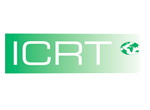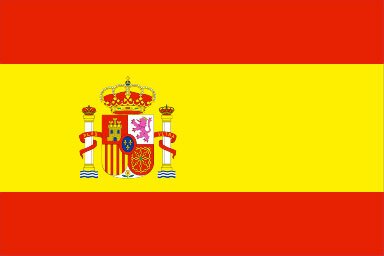Policy Recommendations
To ensure consumer concerns and needs take centre stage during the implementation of the Clean Energy for All Europeans package and in upcoming legislative initiatives under the European Green Deal, we call on EU and national policy makers to take into account the following recommendations:
- Avoid frequently changing the relevant legislation/taxation
Regulatory instability, such as the tax on sun in Spain, changes in taxation, legislation and policies on renewable energy, such as prosumer network tariffs, undermine consumer trust and cut their appetite to engage in renewables. Consequently, consumers tend to wait choosing renewable energies until there is more clarity on regulation and taxation.
RECOMMENDATIONS:
- Ensure stable and clear regulatory and legal framework.
- Avoid retroactive changes in incentives for renewable energy.
- Ensure consumers can easily access financing
Making a return on one’s investment is a decisive factor. While the cost of some renewable energy has tumbled, consumers still struggle with the upfront installation costs and traditional financial solutions are not addressing this hurdle. The administration involved can also be complex and make it difficult to access funds. In some countries, there are no viable financial products available to consumers.
RECOMMENDATION:
A variety of financing options should be available to households: affordable and well-designed green loans (including payments by instalments), public funding for emerging technologies as well as tax incentives and ‘pay as you save’ schemes. Consumers should be able to access the right type of financing that works for them. This is particularly important for lower income households.
- Make better deals more widely available
Consumer organisations under the CLEAR 2.0 project tested a number of technologies and organised 17 group purchase campaigns. By signing up to these campaigns, consumers could get not only reliable advice and renewable energy technologies for a better price but consumer organisations also negotiated better conditions such as extended warranty or the first visit of the technician for free to evaluate the feasibility of the installation. CLEAR 2.0 collaborated with certified installers so all in all, consumers received service they can trust.
RECOMMENDATIONS:
- Consumers should have access to services that are reliable and well-designed. Legal and technical assistance and good after sales conditions negotiated by consumer organisations make it easier for consumers to switch to renewables.
- Group purchases and negotiated advantages can lower the costs for consumers. However, group purchases of renewable technologies are difficult to sustain for consumer organisations in the long run and additional funding in this area will be needed.
- Provide consumers with clear, reliable and granular information on their energy consumption
Smart meters are being rolled out across Europe at different speeds. They can help consumers to better understand their energy consumption and control their energy bills. However, smart meters providing only one’s total consumption, or instant consumption, are not helpful. The consumer needs to know the consumption of an appliance, which appliances cost the most to run and what are the alternatives that could help them to save energy and money.
RECOMMENDATIONS:
- Consumers should have access to and control all the data generated by the smart meter.
- Consumption information should be communicated to consumers via an interface of their choice. It should be visually attractive, simple and granular enough (i.e. per appliance).
- Nudge consumers through education and awareness campaigns
Consumer organisations have been providing consumers with behavioral tips such as how to correctly use electrical cooking plates, optimizing the use of appliances like washing machines, tumble dryers or fridges, making savings via eco-mode and providing tips on equipment replacement with personalized return-on-investment scenarios (e.g. on dishwashers, cold appliances or hot water boilers). Consumers could also profit from advice on smaller size investments (such as for extra insulation and timers for electric boilers which leads to high savings) as well as from tips on how to shift their energy consumption.
RECOMMENDATIONS:
- Raise awareness among consumers so that they better understand their energy consumption and how to be more energy efficient.
- Illustrate to consumers the return on their investments. Consumption of major appliances will allow consumers to consider alternatives and calculate by when the replacement would pay off.
- Provide consumers with consumption information in a user‐friendly format, accompanied with actionable tips and alerts.
- Facilitate personalized tips on how to save energy such as via behavior change, small investments, equipment replacement or bigger investments which are particularly effective.
- Improve information on and energy efficiency of appliances
Tests of heat pumps under CLEAR 2.0 revealed that the Energy label is not fit for purpose and needs to be adapted as it does not currently reflect real life use conditions. Concretely, it means that the devices are less efficient in real life than what is claimed on the Energy label, which is misleading for consumers. Also, out of 160 models tested, 90 did not have information regarding the warmer conditions which means consumers in warmer climate do not have suited information. At the same time, we observe based on CLEAR 2.0 testing results that there is technological room for setting stricter energy efficiency requirements to allow for improvement towards higher efficiency appliances in the future.
RECOMMENDATIONS:
-
Consumers should receive real life use consumption information of their appliances via the well-known Energy label.
- The revised Ecodesign and Energy labeling measures should improve the calculations of the final energy indices, SEER (cooling) and SCOP (heating).
- Only class A (the most efficient class) should be empty at the introduction of the new label to incentivise manufacturers to design more efficient appliances. Products should then be spread among all the other classes to ensure consumers can differentiate between different products and technologies.
- The European Commission should set stricter Ecodesign energy efficiency requirements for both the heating and cooling mode, and monitor energy consumption of heat pumps for future revisions.

 Test Achats
Test Achats  Ocu
Ocu Deco
Deco Altroconsumo
Altroconsumo BEUC
BEUC dTest
dTest MIPOR
MIPOR ICRT
ICRT



